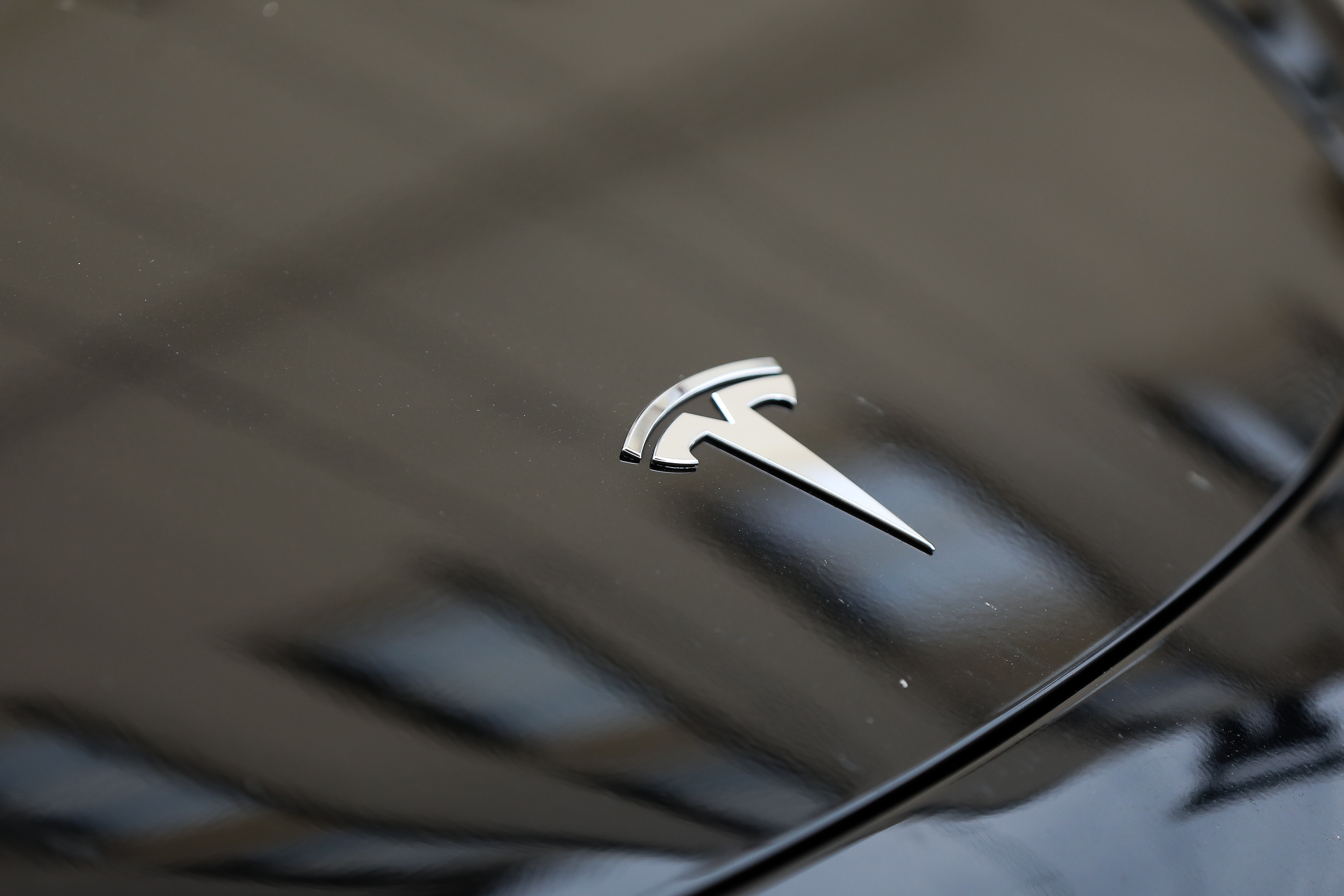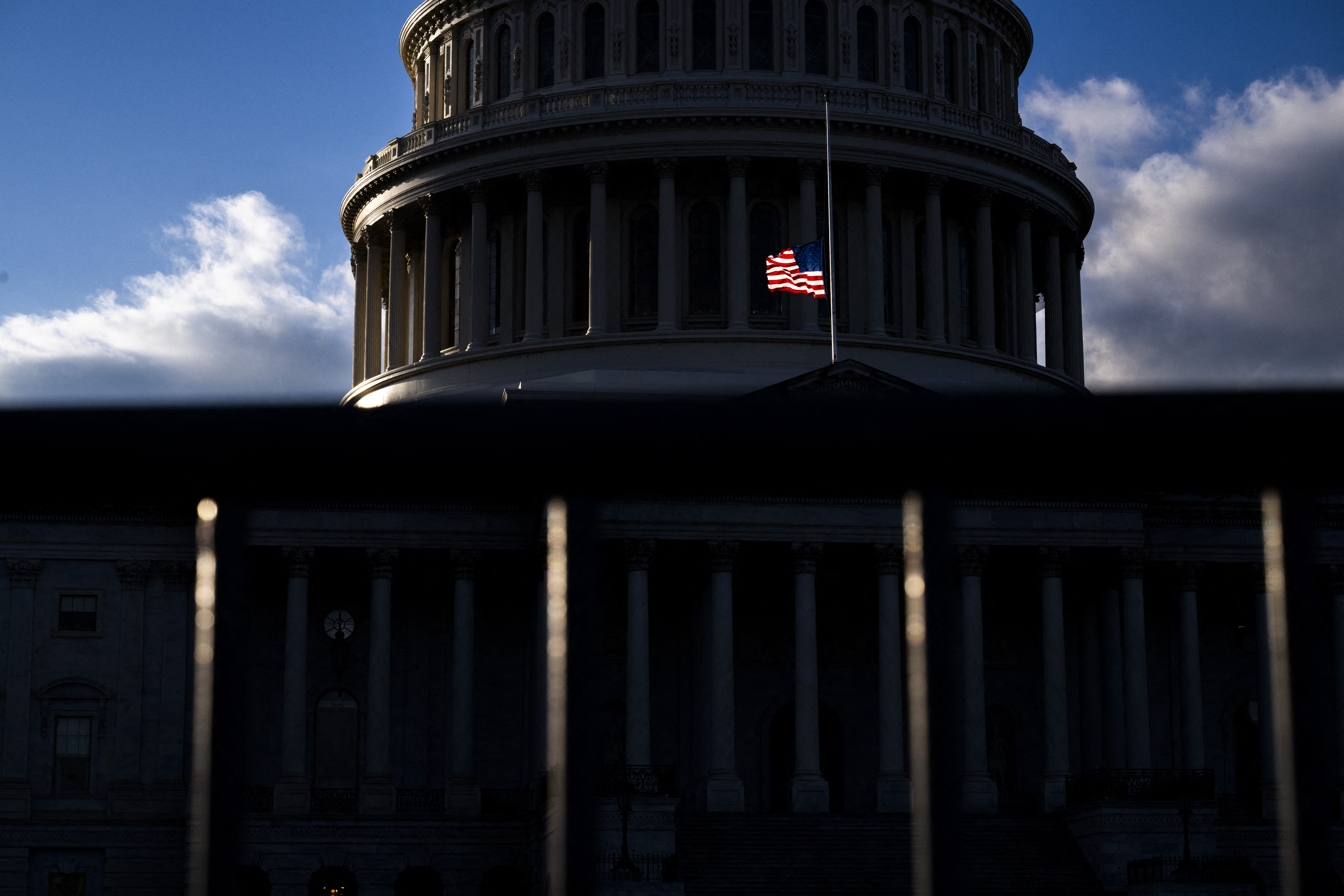
“I carried her because she couldn’t walk.”
Still barefoot but no longer wearily hauling her younger sister over her shoulders, 6-year-old Qamar Subuh has a straightforward explanation for an act that many felt underscored the impact felt by Palestinian children amid Israel’s assault on the Gaza Strip.
Video shared by NBC News shows Qamar carrying her injured sister to a hospital and back in central Gaza.
An NBC News team spoke to the sisters and their family Saturday.
Get Tri-state area news delivered to your inbox.> Sign up for NBC New York's News Headlines newsletter.
Qamar said she and Sumaya Subuh, 5, were on their way to sell boxes of biscuits near the Al Bureij refugee camp when Sumaya was struck by a car.
With Sumaya in need of treatment and unable to walk, Qamar slung her younger sister over her shoulders and carried her to the hospital. With no ambulances to take them home, Qamar said she picked her sister up again and walked barefoot in the sun for more than an hour to get back home, before a man offered to give them a lift.
Images of their odyssey were captured by Palestinian journalist Alaa Hamouda, with Qamar drawing praise for her bravery in a snapshot of the daily reality facing many Palestinians in the enclave.
U.S. & World
The two girls live with their six other siblings and mother in Al Bureij, a sprawling camp that is home to an estimated 49,000 people.
The family occupy a small makeshift tent held up by planks of wood and surrounded by sandbags and rubble. Inside, the family sit up against the wall on dusty old blankets and cushions, their possessions piled into one corner.
The children sing, clap, dance and play games with one another as their mother, Hanan, feeds their 1-month-old baby brother with a bottle.
Qamar recalls the journey with her sister and explains why she helped her.
"She couldn’t walk on her leg," she said.
Qamar says that the pair were selling biscuits to raise money for the family to buy pampers and milk for her brother, as well as new clothes and shoes.
"We want better clothes, and bedding, utensils, everything," she said.
But most of all, she said, she wants to see her father again, after the family lost contact with him after fleeing from northern Gaza.
"We miss him a lot, more than the moon we miss him," she said. "We want to go back to see our aunties, to see our dad, and see all of Gaza and people go back."
The Israeli military's deadly offensive in the north has been labeled one of the conflict’s “darkest moments” by the United Nations’ human rights chief, Volker Türk.
Dr. Muhammad Al-Mughair, head of documentation for the Civil Defense in Gaza, told NBC News on Sunday that approximately 1,000 people had been killed and 670 others were missing since Israel launched the renewed offensive there weeks ago.
Qamar's mother, 33, said the family comes from the northern city of Beit Lahia, where Israeli airstrikes have killed dozens in recent weeks. She said they moved from the north due to hunger, and have since been displaced four times.
"My husband is lost in the north," she said. "When he took us to the checkpoint, we lost contact. When he brought us to the border here, he said goodbye to the children and said, 'May God be with you.'"
Hanan said that she lives in fear of Israeli airstrikes that keep her awake at night, and that her children often go without meals and some days without any food at all.
But she expressed pride in her daughter, "who took her sister, who carried her, healed her and brought her back," she said.
"It’s not within her strength to carry her," she added. "But she had to."
This story first appeared on NBCNews.com. More from NBC News:



